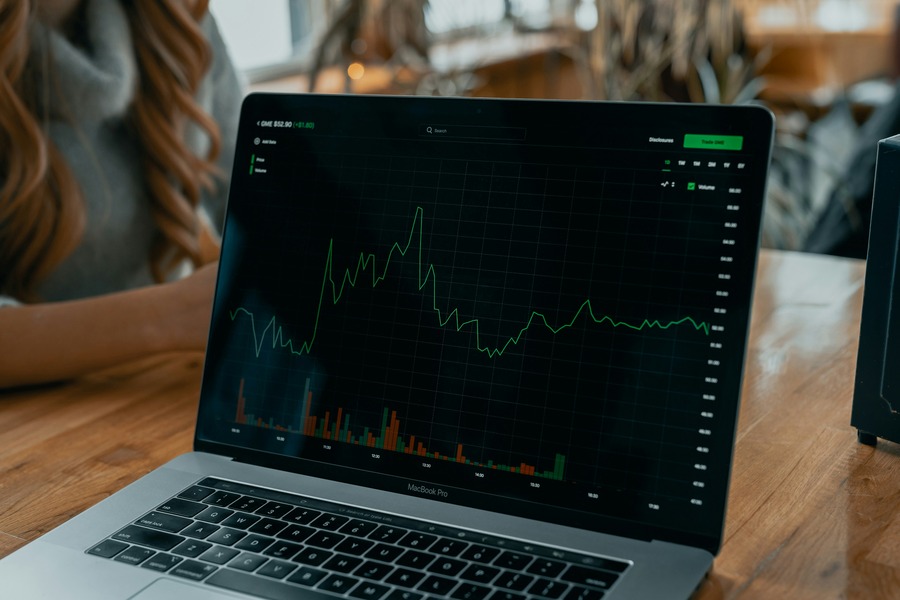Crypto Exchanges Explained
- 31 Aug 2024
- Exchanges mentioned:

Cryptocurrency exchanges are platforms that allow users to buy, sell, and trade digital assets like Bitcoin, Ethereum, and many others. These exchanges are vital to the cryptocurrency ecosystem, providing the liquidity and access needed to participate in the market. In this guide, we'll break down the different types of exchanges, how they work, and how to choose the right one for your needs.
What is a Cryptocurrency Exchange?
A cryptocurrency exchange is a digital marketplace where you can trade one cryptocurrency for another or for fiat currencies like USD, EUR, or GBP. These exchanges operate similarly to stock exchanges but deal exclusively with digital assets. There are two main types of exchanges: centralized and decentralized.
Centralized vs. Decentralized Exchanges
1. Centralized Exchanges (CEXs)
Centralized exchanges are the most common type of cryptocurrency exchange. They are managed by a company or organization that acts as an intermediary between buyers and sellers. Users trust these platforms to handle their transactions, and in return, the exchange provides security, liquidity, and a user-friendly interface.
Examples of CEXs:
- Crypto.com: Known for its user-friendly app and Visa card that lets users spend their crypto easily.
- Coinbase: One of the largest and most trusted exchanges in the U.S., popular for its ease of use, especially for beginners.
- Binance: The world's largest exchange by trading volume, offering a wide variety of cryptocurrencies and advanced trading features.
- KuCoin: A global exchange with a wide range of supported assets and a reputation for strong security measures.
- Nexo: Not just an exchange but also a platform offering crypto-backed loans and earning interest on crypto holdings.
Pros of CEXs:
- High liquidity.
- Advanced trading tools.
- Wide range of supported cryptocurrencies.
- Customer support availability.
Cons of CEXs:
- Custodial wallets make them targets for hacks.
- May require extensive KYC verification.
2. Decentralized Exchanges (DEXs)
Decentralized exchanges operate without a central authority. Instead, they use smart contracts to facilitate trades directly between users. This peer-to-peer trading model offers greater privacy and security since users retain control of their funds throughout the transaction.
Examples of DEXs:
- Uniswap: A leading Ethereum-based DEX.
- SushiSwap: Community-driven with features like staking and yield farming.
- PancakeSwap: Focused on Binance Smart Chain assets, offering low transaction fees.
- 1inch: A DEX aggregator that finds the best prices across multiple platforms.
Pros of DEXs:
- Non-custodial, so users retain control of their private keys.
- Enhanced privacy.
- Fewer regulatory restrictions.
Cons of DEXs:
- Lower liquidity compared to CEXs.
- Steeper learning curve for beginners.

How to Choose a Reliable Exchange
When selecting a cryptocurrency exchange, consider the following factors:
1. Security
Security should be your top priority. Look for exchanges with:
- Two-factor authentication (2FA).
- Cold storage for user funds.
- Insurance against hacking incidents.
2. Fees
Compare transaction, deposit, and withdrawal fees. Some exchanges offer tiered fee structures or discounts for using their native tokens (e.g., Binance’s BNB).
3. Supported Assets
Check if the exchange supports the cryptocurrencies you wish to trade. Binance and KuCoin often list a broader range of altcoins.
4. Liquidity
Higher liquidity ensures faster trades with minimal price slippage. Crypto.com and Coinbase are known for their liquid markets.
5. User Experience
Beginner-friendly exchanges like Coinbase provide intuitive interfaces, while advanced traders may prefer feature-rich platforms like Binance.
6. Regulatory Compliance
Regulatory compliance is a critical factor when choosing a cryptocurrency exchange, as it ensures the platform operates within the legal frameworks of its jurisdiction. Adhering to regulations protects both the exchange and its users by promoting transparency, security, and accountability.
Key Compliance Aspects to Consider:
-
KYC (Know Your Customer):
Many exchanges require users to verify their identity before trading or withdrawing funds. This process involves submitting government-issued identification and proof of address. KYC helps prevent illegal activities like money laundering and fraud by linking accounts to verified individuals.- Why It Matters: Complying with KYC ensures your exchange is less likely to face shutdowns or legal issues, safeguarding your funds.
-
AML (Anti-Money Laundering):
AML policies are designed to prevent criminal activities by monitoring transactions for suspicious behavior. Exchanges with robust AML protocols often require users to report large or unusual transactions, further ensuring a secure trading environment. -
Licensing and Regulation by Authorities:
Check if the exchange is licensed or regulated by financial authorities in its operating regions. For example:- United States: Exchanges must register with FinCEN (Financial Crimes Enforcement Network) and comply with federal and state laws.
- Europe: Many exchanges follow regulations under MiCA (Markets in Crypto-Assets) for EU compliance.
- Japan: Platforms need to be approved by the Financial Services Agency (FSA) to operate legally.
-
Jurisdiction-Specific Restrictions:
Some exchanges may not be available in certain countries due to regulatory restrictions. For instance:- Binance has specific versions for regions like the U.S. (Binance US) to comply with local regulations.
- Users in highly regulated areas, such as New York, must verify the exchange operates legally in their jurisdiction.
Benefits of Using Compliant Exchanges:
- Security and Stability: Exchanges that comply with regulations are less likely to face sudden bans or shutdowns.
- Reputation: Regulatory compliance builds trust and confidence among users.
- Ease of Tax Reporting: Compliant exchanges often provide transaction histories and tools to help users fulfill their tax obligations.
How to Check Compliance:
- Visit the exchange's official website and review its legal information or "About Us" section.
- Look for licenses or partnerships with regulatory bodies.
- Read user reviews and online discussions to identify any past issues with compliance.

By choosing an exchange that prioritizes regulatory compliance, you not only protect yourself but also contribute to the broader legitimacy of the cryptocurrency ecosystem.
Additional Tips for Using Exchanges
1. Secure Your Account
- Use strong, unique passwords.
- Enable 2FA for added security.
2. Avoid Keeping Funds on Exchanges
- Withdraw funds to a private wallet for long-term storage.
- Consider using hardware wallets for maximum security.
3. Stay Informed
- Monitor market trends and exchange announcements.
- Join community forums or follow official channels for updates.
4. Practice Responsible Trading
- Start small, especially if you’re a beginner.
- Use demo accounts or test features before making large investments.
Trading Pairs Explained
A trading pair refers to two assets that can be exchanged for one another on a cryptocurrency exchange. These pairs are crucial for understanding how trades are conducted, as they define the relationship between the base currency (the first asset in the pair) and the quote currency (the second asset). For example:
- BTC/USD: Bitcoin traded against the US dollar. The price reflects how much USD is needed to buy one BTC.
- ETH/BTC: Ethereum traded against Bitcoin. The price indicates how many BTC are required to purchase one ETH.
Types of Trading Pairs
-
Crypto-to-Crypto Pairs:
These pairs allow direct swaps between two cryptocurrencies without converting to fiat. They are ideal for users who want to diversify their portfolio or take advantage of market opportunities.- Examples:
- ETH/BTC: Trade Ethereum for Bitcoin.
- ADA/SOL: Trade Cardano for Solana.
- Examples:
-
Crypto-to-Fiat Pairs:
These pairs involve trading cryptocurrencies directly against fiat currencies like USD, EUR, or GBP. They are commonly used by beginners to enter or exit the crypto market.- Examples:
- BTC/USD: Trade Bitcoin for US dollars.
- LTC/EUR: Trade Litecoin for euros.
- Examples:
-
Stablecoin Pairs:
Stablecoins, like USDT (Tether) or USDC (USD Coin), are pegged to fiat currencies, providing stability in volatile markets. These pairs are popular for traders seeking to protect gains or reduce exposure to price swings.- Examples:
- ETH/USDT: Trade Ethereum for Tether.
- BTC/USDC: Trade Bitcoin for USD Coin.
- Examples:
Why Trading Pairs Matter
Understanding trading pairs is vital for navigating exchanges effectively:
- Price Comparison: Trading pairs reflect the relative value of two assets, helping users identify the best deals.
- Market Liquidity: Pairs with high trading volumes offer better liquidity, reducing the risk of price slippage during trades.
- Diversification: Crypto-to-crypto pairs enable users to diversify portfolios without converting to fiat.
Tips for Trading Pairs
-
Monitor Market Trends:
Track the performance of both assets in the pair. For example, if BTC is volatile, it can affect the BTC/ETH pair's price. -
Understand Spread and Fees:
Different exchanges apply varying spreads (the difference between the buy and sell price) and trading fees, which can impact profitability. -
Use Stablecoins Strategically:
During market downturns, stablecoin pairs can help preserve portfolio value while waiting for better trading opportunities. -
Pay Attention to Pair Availability:
Not all exchanges offer the same trading pairs. For instance, smaller or newer altcoins may only have crypto-to-crypto pairs on specific platforms.

By mastering trading pairs, you can make more informed decisions and optimize your trading strategies in the dynamic cryptocurrency market.
Conclusion
Cryptocurrency exchanges are essential for navigating the digital asset landscape. Whether you choose a centralized exchange for its convenience or a decentralized one for enhanced privacy, understanding your needs and priorities is key to selecting the right platform. Consider security, fees, liquidity, and user experience when making your choice.
For further insights, including in-depth reviews and comparisons, visit our exchanges page. Armed with the right knowledge, you can confidently trade and invest in the exciting world of cryptocurrencies.












